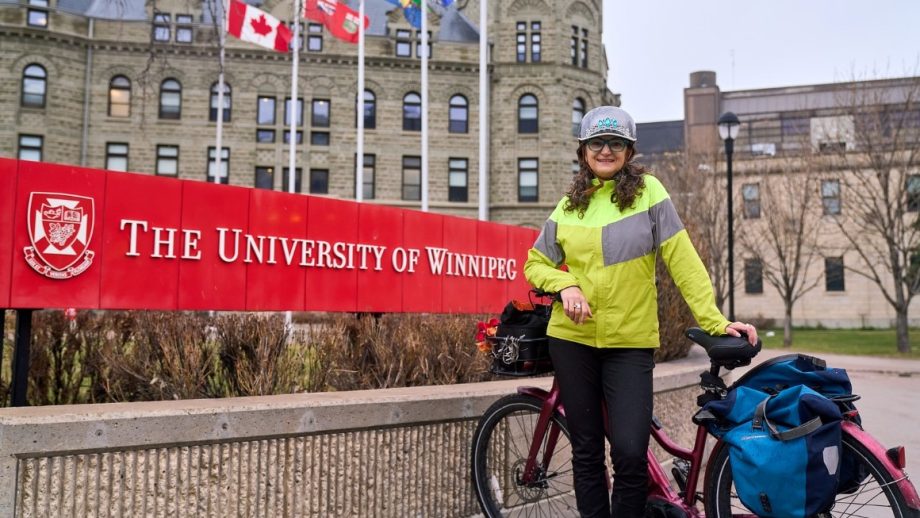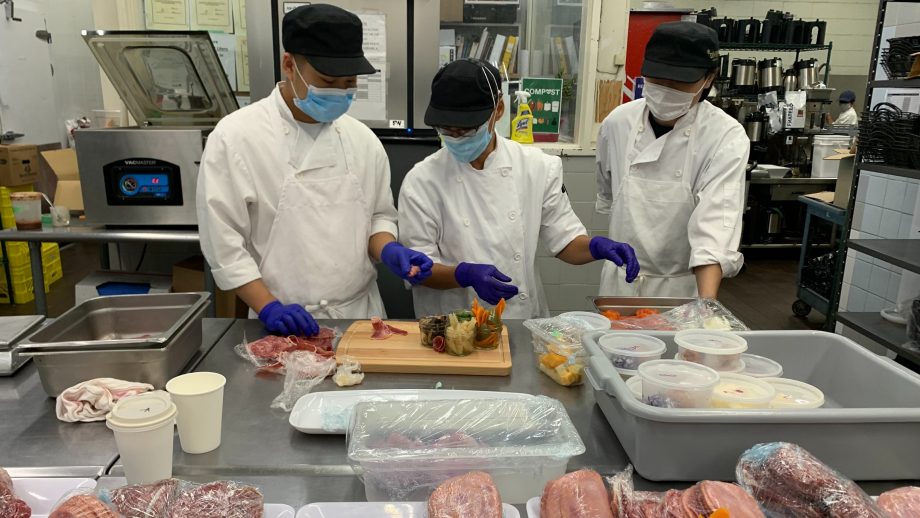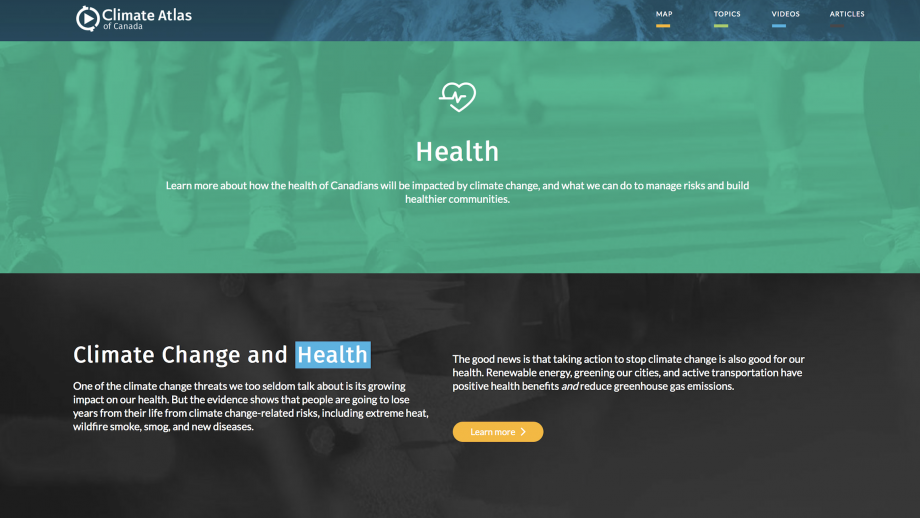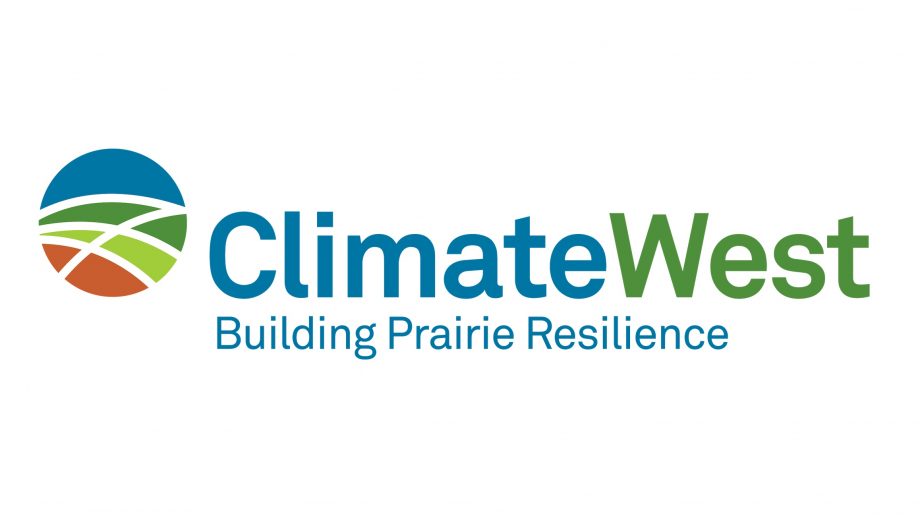As Earth Day 2023 arrives, The University of Winnipeg is recognizing the programs and projects that continue to make it a leader in campus sustainability.
UWinnipeg’s multi-faceted sustainability strategy continues to produce results for people and the planet.
For every dollar that was spent with Diversity on campus last year, 89 cents went directly back into the Manitoba economy.
Ian Vickers
Diversity Food Services, which offers some of the most sustainable campus meals in North America, plays a key role.
In 2019 and 2020, Diversity bested more than 500 institutions to claim the top spot in the Sustainable Campus Index’s food and dining rankings, compiled by the Association for the Advancement of Sustainability in Higher Education (AASHE).
Diversity’s local procurement model and scratch-cooked kitchen services allow it to continue to lead Canada in sustainable institutional food services.
“Spending our money locally not only helps to increase the circular economy in Manitoba, it also means that your food travels fewer miles,” said Ian Vickers, Chief Operating Officer of Diversity Food Services. “Small- and medium-sized independent Manitoba businesses continue to represent the vast majority of our supply chain. For every dollar that was spent with Diversity on campus last year, 89 cents went directly back into the Manitoba economy.”
Diversity has nearly eliminated single-use plastics in its facilities, favouring compostable or biodegradable products wherever possible. Each of its kitchens are Level 2-certified by Leaders in Environmentally Accountable Foodservice (LEAF).
Diversity recently resumed its partnership with FortWhyte Alive to facilitate all food, beverage, and events services at their 660-acre urban green space.
Services, buildings emphasize sustainability
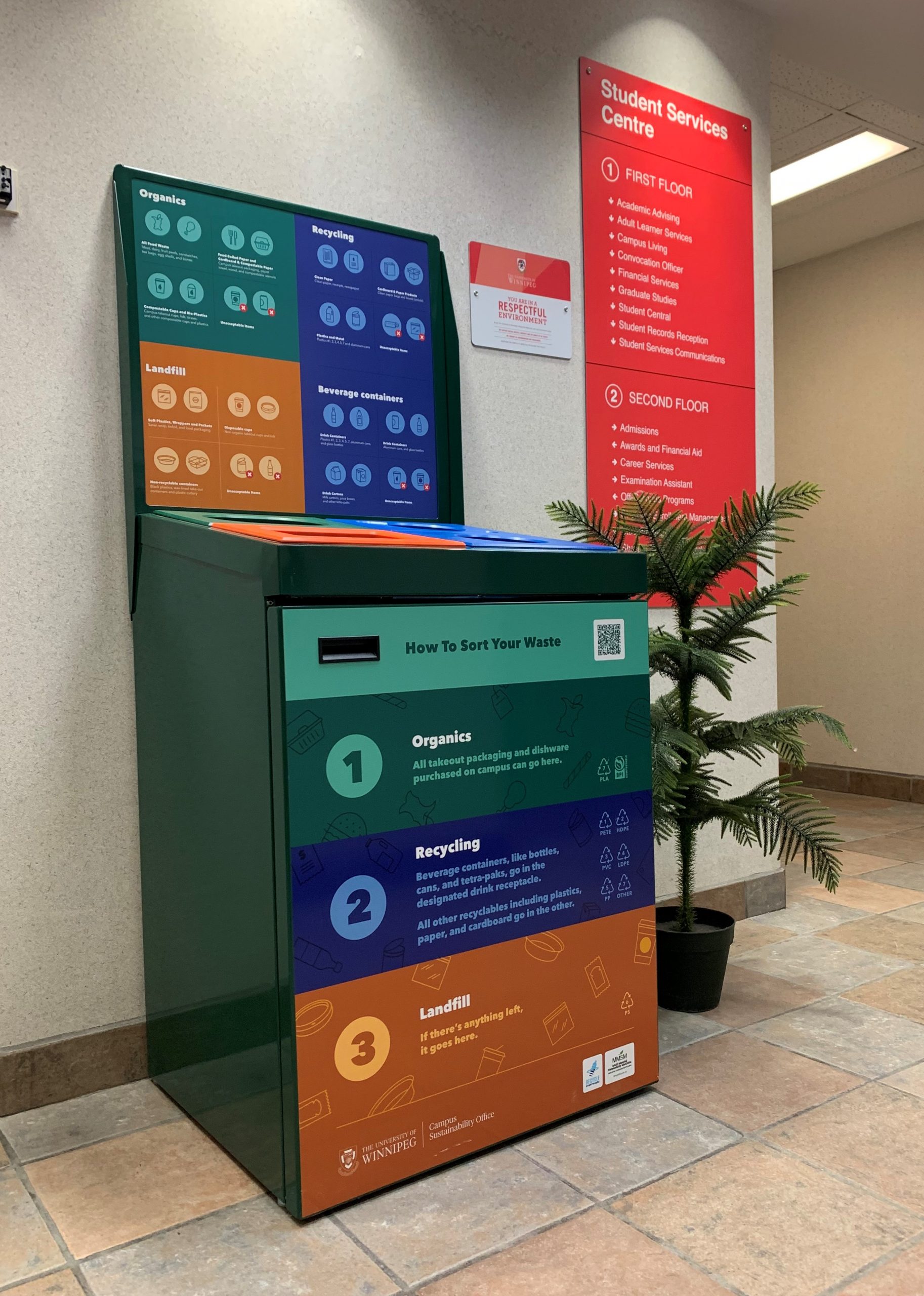
UWinnipeg is currently redeveloping its multi-stream waste bins to increase diversion rates and decrease contamination rates.
Waste diversion is another important part of sustainability at UWinnipeg, where campus-wide composting has been offered since 2007. The multi-stream waste bins located around campus are currently being redeveloped to increase diversion rates and decrease contamination rates. Dedicated recycling programs continue for face masks, gloves, writing utensils, batteries, toner cartridges, and e-waste.
Green energy is also being generated at UWinnipeg. Atop the Axworthy Health and RecPlex are 540 solar panels that supply 20 per cent of the building’s annual electricity needs. The array, installed in 2019, is one of the largest in Winnipeg.
In addition, UWinnipeg is home to Manitoba’s first urban biomass silo. Installed in 2018, it decreased greenhouse gas emissions by 17 per cent. The system runs on locally sourced wood pellets that are fed into two boilers in the basement of Ashdown Hall.
Built infrastructure is contributing to campus sustainability too. UWinnipeg is one of 26 Canadian institutions to receive a Silver rating from the AASHE after earning a Sustainability Tracking Assessment and Rating System (STARS) score of 59.78.
Five buildings on campus have been certified for Leadership in Energy and Environmental Design (LEED). Gold ratings were awarded to the Richardson College for the Environment and Science Complex and the Axworthy Health and RecPlex. The Buhler Centre, McFeetors Hall, and the University of Winnipeg Students’ Association Day Care received Silver ratings.
UWinnipeg is also leading the way in sustainability research and instruction. The campus is home to the Prairie Climate Centre, publisher of the interactive Climate Atlas of Canada, and 21 university departments offer courses focused on or relating to sustainability topics.
Students are also setting a green example. Each spring, as dormitory residents are preparing to move, the Campus Sustainability Office organizes the McFeetors Hall Residents’ Giveaway to donate surplus reusable items, such as housewares, to local organizations that serve community members in need.
On Earth Day and throughout the year, UWinnipeg is building a sustainable future for students, staff, faculty, and the wider community.


